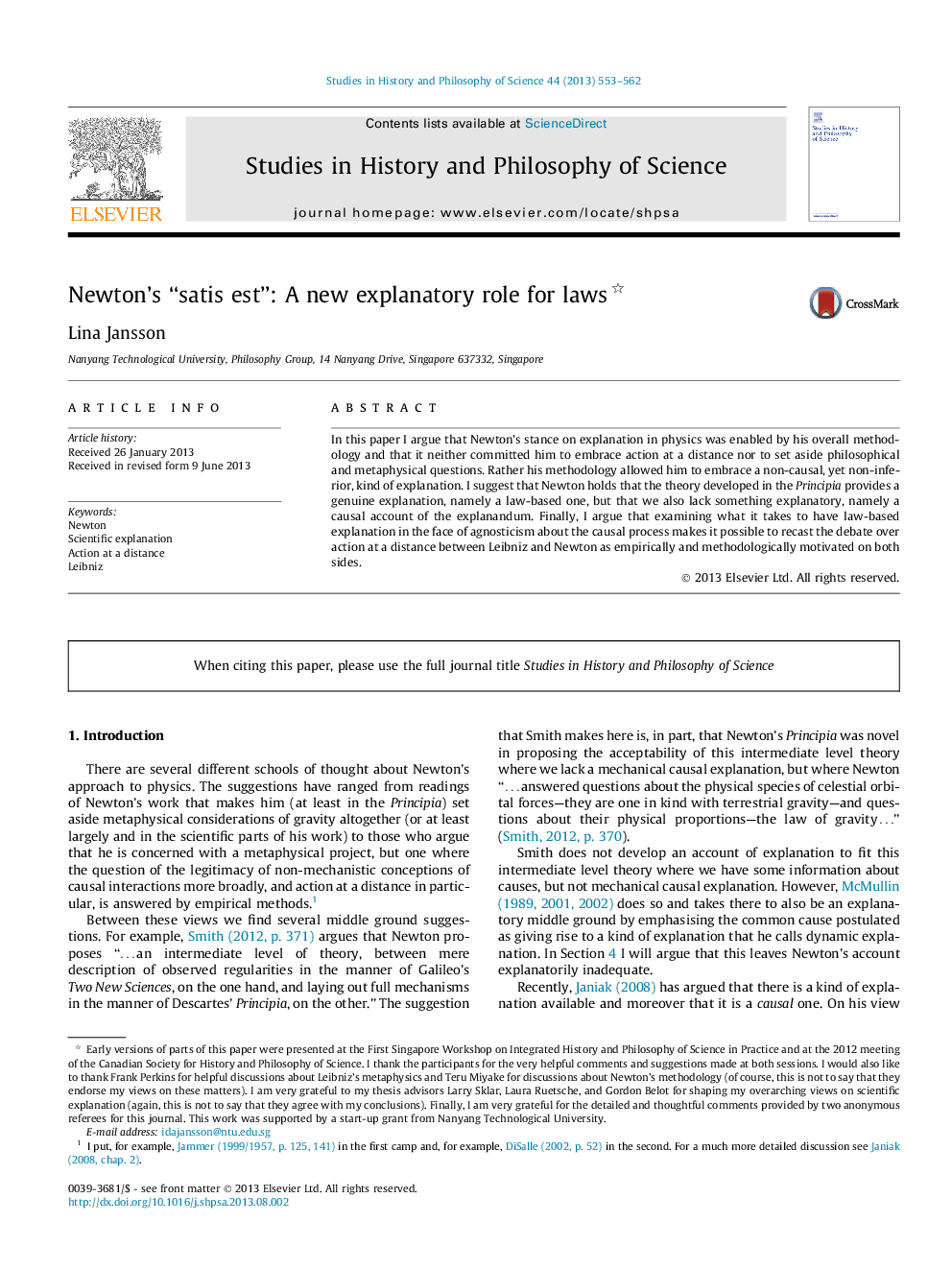| Article ID | Journal | Published Year | Pages | File Type |
|---|---|---|---|---|
| 1160653 | Studies in History and Philosophy of Science Part A | 2013 | 10 Pages |
•Newton’s methodology allowed him to provide law-based explanation.•Newton did not take himself to have a causal explanation.•The debate between Leibniz and Newton could be empirical and methodological.
In this paper I argue that Newton’s stance on explanation in physics was enabled by his overall methodology and that it neither committed him to embrace action at a distance nor to set aside philosophical and metaphysical questions. Rather his methodology allowed him to embrace a non-causal, yet non-inferior, kind of explanation. I suggest that Newton holds that the theory developed in the Principia provides a genuine explanation, namely a law-based one, but that we also lack something explanatory, namely a causal account of the explanandum. Finally, I argue that examining what it takes to have law-based explanation in the face of agnosticism about the causal process makes it possible to recast the debate over action at a distance between Leibniz and Newton as empirically and methodologically motivated on both sides.
